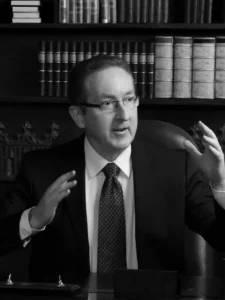In recent years, aquaculture in Saudi Arabia has undergone significant change. Driven by the ambitious goals set out in Saudi Vision 2030, the sector has witnessed significant growth and is well on its way to achieving the government’s target of producing 600,000 tons of seafood annually. This progress is largely due to supportive government policies, essential infrastructure development, and significant investments in both infrastructure and educational programs.
In this article, we will explore Saudi Arabia’s aquaculture industry, examining positive steps made by The Kingdom to invest and develop the industry, as well as ongoing challenges that must be overcome to secure long-term sustainable growth.
Rapid growth and favourable conditions
Saudi Arabia’s aquaculture sector has witnessed remarkable growth in recent years, with production increasing by 400% between 2015 and 2022. This rapid expansion can be attributed, in part, to a concerted effort from public and private stakeholders to bolster food security in the region, improve economic diversification, and reduce overreliance on food imports.
Aquaculture in Saudi Arabia benefits heavily from several geographic and environmental advantages inherent to the region. Saudi Arabia boasts an extensive coastline along the Red Sea and the Arabian Gulf, offering ideal conditions for the cultivation of various aquatic species. The country’s favourable climatic conditions, characterised by warm temperatures and ample sunlight, support the growth and reproduction of many commercially important species, such as shrimp, sea bream, and barramundi.
Moreover, Saudi Arabia’s vast expanses of desert land provide opportunities for aquaculture use, and The Kingdom’s geographic location – at the crossroads of Europe, Asia, and Africa – provides a competitive advantage for the export of fresh seafood to lucrative markets worldwide.
Hatcheries: The starting point
The success of Saudi Arabia’s aquaculture industry relies heavily on the availability of high-quality seed stock, which is produced in hatcheries. However, the country has faced challenges in this regard, with limited broodstock capacity and insufficient live food production. To address these issues, the Saudi government has taken proactive steps, including the establishment of a national broodstock centre. This facility aims to enhance the genetic quality and diversity of broodstock, ensuring a reliable supply of seed stock going forward.
Private sector hatcheries have also played a key role in supporting the growth of the aquaculture sector. These hatcheries have invested in state-of-the-art technologies and adopted best management practices to optimise seed production. By collaborating with research institutions and international experts, Saudi hatcheries are continuously improving their operations and expanding their capacity to meet the increasing demand for quality seed stock.
Grow-out facilities
Once the seed stock is produced, it is transferred to grow-out facilities, where the fish and shellfish are reared to marketable sizes. The adoption of innovative technologies, such as recirculating aquaculture systems (RAS), has significantly advanced aquaculture in Saudi Arabia. RAS allows for the farming of fish and other aquatic organisms in a closed-loop system where water is continuously filtered and reused. In doing so, RAS enables the efficient use of water resources and the production of high-quality seafood in a more sustainable and efficient manner.
However, grow-out facilities in Saudi Arabia still face several challenges, particularly related to water scarcity and high salinity levels. To overcome these obstacles, researchers and industry stakeholders are collaborating to develop novel solutions, such as the use of alternative water sources and the development of salt-tolerant species, to further enhance the efficiency and sustainability of grow-out operations.
Processing: The primary challenge?
The success of aquaculture in Saudi Arabia depends not only on efficient production but also on the ability to process seafood products. To this end, the industry still requires significant infrastructural investments.
Currently, there is very little development of fish processing facilities in The Kingdom. The absence of comprehensive fish processing facilities, including canning, has impeded the development of the aquafeed industry, as fish processing waste is a key protein source for aquafeed. Despite initial plans by Arabian Agricultural Services Company (ARASCO) to establish a state-of-the-art aquafeed mill in collaboration with Saudi Fisheries Company, this project was ultimately scrapped due in part to these constraints.
Additionally, although significant investments have been made in aquaculture capacity, much of this capacity remains underutilised. Investors have been hesitant to operationalise these facilities, partly due to the government’s prioritisation of the poultry sector and the uncertainty surrounding future government incentives for aquaculture. The industry’s growth is currently in a state of cautious anticipation, with many stakeholders waiting to see how government policies will evolve once poultry self-sufficiency targets are met by 2030, or should the Saudi government introduce more conducive policies for aquaculture.
Distribution
The development of efficient distribution networks, including cold chain logistics and transportation infrastructure, has been crucial for ensuring that fresh, high-quality seafood reaches consumers in both domestic and international markets.
The Saudi government has also launched initiatives to encourage the development of value-added products, such as ready-to-eat meals and convenience foods. These efforts aim to cater to the evolving preferences of consumers and to capture a larger share of the global seafood market.
The future of aquaculture in Saudi Arabia industry
Aquaculture in Saudi Arabia holds great potential, though challenges persist. As the sector continues to expand and innovate, it will play an increasingly important role in the country’s economic diversification and efforts to improve food security, though it will require more public sector support to fully realise these goals.
At Farrelly Mitchell, our food and agribusiness consultants hold deep knowledge on the fisheries and aquaculture industry. In the past two decades, we have been a trusted partner to both public and private stakeholders looking to develop and invest in the industry, particularly throughout the Middle East. Our experts can provide crucial insights into all operational, financial, and technical aspects of aquaculture, with the goal of building more efficient, sustainable, and profitable farms. To find out more about our services and how we can help your business grow, contact us today.














